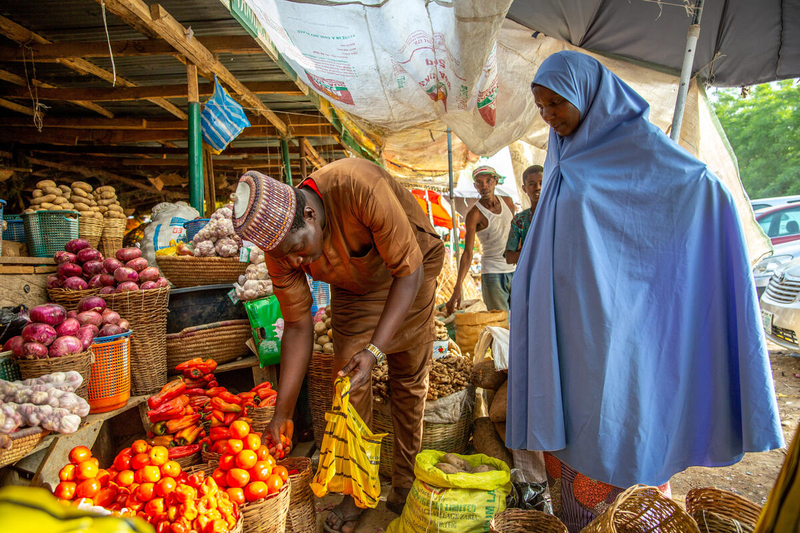A new study conducted by several international development partners reveals that over 31.8 million Nigerians are facing acute food shortages, the Nigerian government announced on Tuesday. This alarming figure represents a significant increase from previous assessments and highlights the growing food security crisis in Africa’s most populous nation.

The Ministry of Budget and Economic Planning cited the study’s findings, which were presented during a two-day meeting with government officials. The research points to two primary factors exacerbating the food crisis: ongoing security challenges and the recent removal of fuel subsidies.
“The surge in food commodity prices, which is a result of the removal of fuel subsidy in addition to security challenges, has placed millions of Nigerians in a precarious situation,” the ministry stated. This sharp rise in food insecurity contrasts starkly with the U.N. World Food Programme’s assessment from October to December 2023, which identified 18.6 million people as vulnerable to acute food insecurity.
The study, produced by partners including the U.N. Food and Agriculture Organization, the Global Alliance for Improved Nutrition, and the German development agency GIZ, utilized statistics from the Cadre Harmonise, a regional food security framework. It highlights the severe impact on women and children, with rising malnutrition rates reported across the country.

Nigeria’s food security crisis is compounded by persistent raids by armed bandits in rural areas, forcing many farmers to abandon their fields. This exodus has contributed to higher food prices and soaring inflation, pushing the country into its worst cost of living crisis in a generation.
President Bola Tinubu’s decision to remove fuel subsidies shortly after taking office in May 2023, aimed at reducing government spending, has led to a significant increase in transportation costs. This policy change has had far-reaching effects on food accessibility and affordability for millions of Nigerians.
Sanjo Faniran, Nigeria’s national convener of Food Systems and director of social development in the Ministry of Budget and Economic Planning, emphasized the study’s importance in identifying gaps, successes, and challenges in addressing food insecurity. The findings are expected to inform policy recommendations and guide future interventions.



